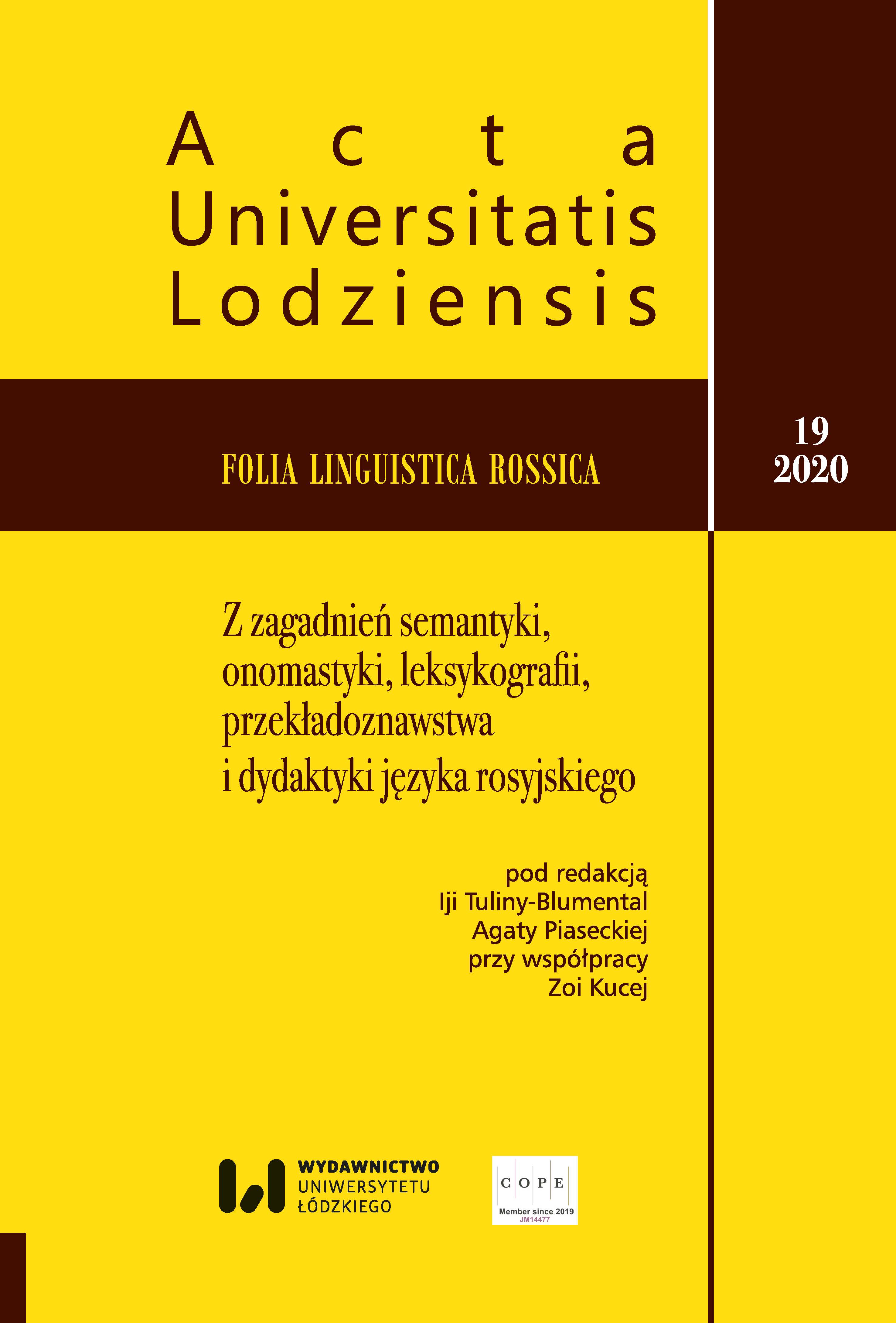Полевая организация глагольной лексики (на примере глаголов со значением ‘защищать’ в русском языке)
Field arrangement of verbs (on the basis of verbs with the meaning ‘to defend’ in the Russian language)
Author(s): Anzhelika H. LitvinovichSubject(s): Language and Literature Studies, Semiotics / Semiology
Published by: Wydawnictwo Uniwersytetu Łódzkiego
Keywords: lexical semantic group; field structure; nucleus; periphery; causative verb; semantic structure
Summary/Abstract: The author looks into the lexical semantic group of Russian defence verbs. The point of the research is to trace peculiarities of the semantic structure of verbs containing the elements of ‘defend’ and ‘cause.’ Another question is the principles governing the causative defence verbs in terms of field organization. The analysis seeks answers to some disputable questions: distinctions between causative and non-causative verbs, boundaries of the causative verbs class, the nucleus and peripheral elements of the causative category within the lexical semantic group of defence verbs. The relevance of the research is increased by the insufficient amount of causativity analyses of specific lexical semantic groups in the Russian language. The research methods are the contextual method, transformation method, component analysis, distributive analysis, and dictionary definitions analysis. It was found out that the core and periphery of the lexical semantic group of defence verbs and causative verbs do not coincide. Among defence verbs, there is one item which does not contain the element ‘cause’ in its semantic structure. The criteria of the peripheral position of Russian defence verbs among causative verbs have been systematized.
Journal: Acta Universitatis Lodziensis. Folia Linguistica Rossica
- Issue Year: 2020
- Issue No: 19
- Page Range: 91-101
- Page Count: 11
- Language: Russian

